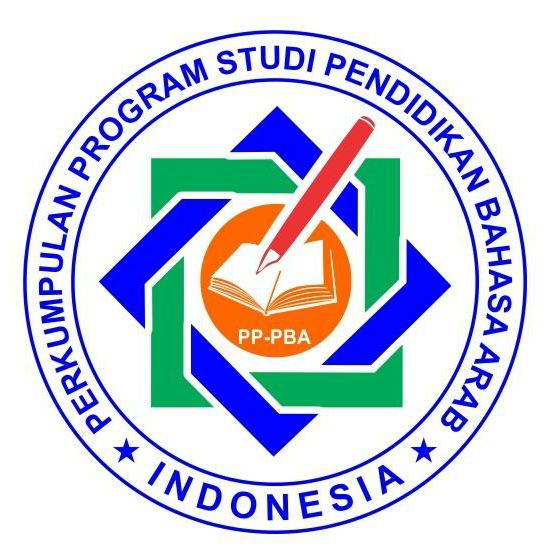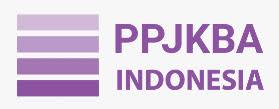Penggunaan Platform Online dalam Pengajaran Matakuliah Al-Hadis dalam Bahasa Arab
DOI:
https://doi.org/10.37680/aphorisme.v5i1.5642Keywords:
Al-Hadīṡt, Digital, Learning, Online, PlatformAbstract
The use of online platforms in teaching Al-Hadith courses in Arabic is the focus of this study, which aims to evaluate the effectiveness of technology-based learning in the pandemic era. This study uses a qualitative approach with a purposive sampling method in the Islamic Broadcasting Communication Study Program, Faculty of Da'wah and Communication Sciences UIN Syarif Hidayatullah Jakarta, involving 33 2nd semester students. Data were collected through online questionnaires, with 8 questions using a Likert scale 5 to measure student perceptions. Data analysis follows the Miles and Huberman model through data reduction, presentation, and inference. The results showed that most students felt technically ready to use online platforms, facilitating in-depth interactions such as discussions and forums. Support from teachers and time flexibility have also been shown to increase student satisfaction with learning. However, challenges in time management and the need for active involvement of teachers were also identified as important factors. In conclusion, learning al-Hadith through online platforms can provide an effective and satisfying learning experience, provided there is adequate infrastructure and support.
References
Asmita, Yulianti, D., Kurniawan, D. A., & Maison. (2022). Identifikasi Permasalahan Siswa dalam Pembelajaran Fisika Secara Daring pada Materi Dinamika Gerak di MAN 1 Tanjung Jabung Barat. Prosiding Seminar Nasional Batch 1, 6–20.
Athiyyaturrahmah, & Zainab, N. (2024). Pengembangan Bahan Ajar Al-Qur’an Hadits Berbasis Digital dalam Meningkatkan Minat Belajar Siswa. Nusantara: Jurnal Pendidikan Indonesia, 4(1), 80–96.
Fauziyah, N. L. (2021). Pembelajaran Daring Ulumul Hadits: Respon Mahasiswa dan Dampaknya Terhadap Nilai Akhir Semester. Journal of Islamic Education, 3(2), 185–196.
Hidayad, F., Umar, Agustin, A., Despita, & Purwanto, M. B. (2023). He Effectiveness Of Online Assessment Platforms In Efl Classroom: A Students’ Perception On Using Kahoot Application. Jurnal Scientia, 12(1), 87–97.
Huda, Moh. M., & Zafi, A. A. (2021). Penerapan Aplikasi Classroom pada Mata Pelajaran Qur’an Hadits . Ilmu Al-Qur’an (IQ) Jurnal Pendidikan Islam, 4(2), 221–235.
Kurniawan, A. W., & Tawakal, M. I. (2022). Survey On The Effectiveness Of Online Learning Processes Due To The Coronavirus (Covid-19) Pandemic In Table Tennis Course. Jurnal SPORTIF: Jurnal Penelitian Pembelajaran, 8(3), 119–135.
Muzakki, A., & Wahyudi, W. E. (2021). Desain E-Learning Berbasis Google classroom Pada Mata Pelajaran AlQur’an Hadis. Journal of Instructional and Development Researches, 1(1), 20–29.
Saputra, P., & Rasyid, I. (2023). Analysis of Arabic Language Learning on the Arabiyah Talks Instagram from a Constructivist Approach Perspective. Islamic Manuscript of Linguistics and Humanity (IMLAH) UPT Pengembangan Bahasa UIN Imam Bonjol Padang, 5(2), 25–37.
Wang, K. (2022). Statistics and Analysis of Effective Data on Online Teaching of College English Audiovisual Teaching. Mathematical Problems in Engineering, 1–7.
Wardiastuti, F. (2023). Quizizz: Solusi Digital untuk Asesmen Pembelajaran Ulumul Hadis Prodi
Dera,S, Luthfi, H.M, Din, A.U, Pemanfaatan Platformdigitaldalam Pembelajaran Online Selama Masa Pandemi Covid-19 Di Sekolah Dasar (2021), Jurnal Pendidikan Dasar,11(2),220~270.
Dewi, M.A, Atmojo, I.R.W, Saputri, D.Y,(2021), Analisis pemanfaatan aplikasi online pada pembelajaran daring (dalam jaringan) di sekolah dasar, Jurnal Pendidikan Ilmiah,7(1),24-28.
Janattaka, N. Putri, C. C. A,(2021), Peran Platform Digital dalam Pembelajaran Daring. Almufi Jurnal Pendidikan, 1 (3), 138-146.
Indang, R.F, Ariyatun (2021),Online Learning: Definisi, Komponen, Karakteristik dan Tren Pembelajaran Masa Depan, Jurnal Administrasi dan Managemen Pendidikan, 2(2), 204~207.
Sabilar, R, Muhammad, A(2023), Hadis di Era Digital: Tantangan dan Peluang PenggunaanTeknologi dalam Studi Hadis, Jurnal Ilmu Agama, 24(2), 185~187.
Abidin, P. W, Ahmad F, Dayintasya R P, Meilisa A. N, Aditia M. N (2023), Islam Dan Tantangan Dalam Era Digital: Mengembangkan Koneksi Spiritual Dalam Dunia Maya, Jurnal Pendidikan dan Kajian Keislaman, 5(1), 2~4.
Hafizzullah,Fadhilah I (2021), Living Hadis Dalam Konsep Pemahaman Hadis, Jurnal Riset Publikasi Mahasiswa,1(1), 1~13.
Hatta, A. M. (2016), Naqd Al-Hadits Sebagai Metode Kritik Kredibilitas Informasi Islam, Journal of Islamic Studies and Humanities, 1(1), 54~57.
Muhammad A. (2021), Sanad Digital: Ijazah Hadis Musalsal Dalam Kajian Hadis Virtual Di Grup Dan Halaman Facebook , Jurnal Sanad Digital ,2(1), 148~158.
Downloads
Published
Issue
Section
License
Authors who publish with this journal agree to the following terms:
Authors retain copyright and grant the journal right of first publication with the work simultaneously licensed under a Creative Commons Attribution-NonCommercial 4.0 International License that allows others to share the work with an acknowledgement of the work's authorship and initial publication in this journal.
Authors are able to enter into separate, additional contractual arrangements for the non-exclusive distribution of the journal's published version of the work (e.g., post it to an institutional repository or publish it in a book), with an acknowledgement of its initial publication in this journal.
Authors are permitted and encouraged to post their work online (e.g., in institutional repositories or on their website) prior to and during the submission process, as it can lead to productive exchanges, as well as earlier and greater citation of published work.




.jpg)


